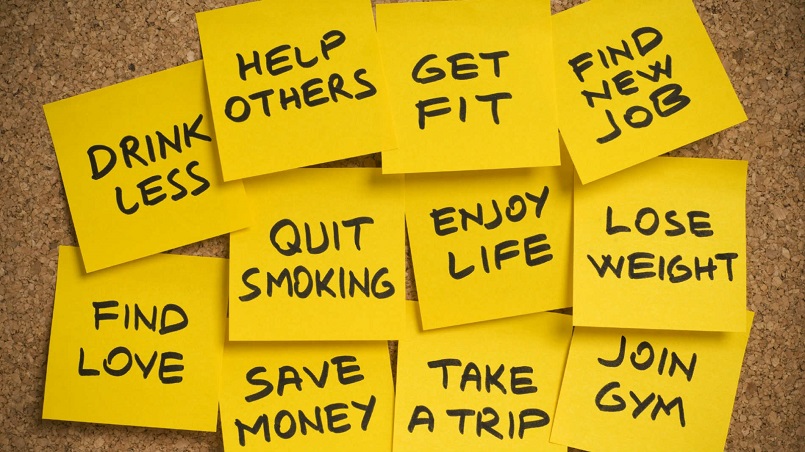
As Christmas trees go down every December, another event comes up the next month…list of New Year resolutions.
One cannot deny not having at least one resolution when the New Year arrives.
It’s a rhythm throughout the world many people get swept into – a list of things to do differently in the New Year, a promise to take a new path or direction and many more.
But the truth is, by the end of January, many go back to the old routine or way of doing things.
You don’t have to beat yourself up about it, and this is in fact a tip offered by the American Psychological Association.
Don’t beat yourself up
Perfection is unattainable. Remember that minor missteps when reaching your goals are completely normal and OK. Don’t give up completely because you ate a brownie and broke your diet, or skipped the gym for a week because you were busy. Everyone has ups and downs; resolve to recover from your mistakes and get back on track.
In an article on MailOnline, Professor Peter Herman, a psychology lecturer at the University of Toronto says that the reason resolutions fail is because they are too ambitious.
He told MailOnline: 'They are unrealistic in some or all of the following respects: people think that they can change more quickly than is the case, they think that they can change more than is the case, or they think they can change more easily than is the case.'
Professor Herman suggests that the issue may be a cycle of failure, interpretation, and renewed effort, which he calls 'the false-hope syndrome.'
The cycle begins with people undertaking a difficult self-change task, such as overeating, gambling or smoking – common, yet rarely successful changes.
APA quotes psychologist Lynn Bufka, PhD:
“Setting small, attainable goals throughout the year, instead of a singular, overwhelming goal on January 1 can help you reach whatever it is you strive for. Remember, it is not the extent of the change that matters, but rather the act of recognizing that lifestyle change is important and working toward it, one step at a time.”
Here are a few tips to help, according to the American Psychological Association
Start small
Make resolutions that you think you can keep. If, for example, your aim is to exercise more frequently, schedule three or four days a week at the gym instead of seven. If you would like to eat healthier, try replacing dessert with something else you enjoy, like fruit or yogurt, instead of seeing your diet as a form of punishment.
Change one behaviour at a time
Unhealthy behaviours develop over the course of time. Thus, replacing unhealthy behaviours with healthy ones requires time. Don’t get overwhelmed and think that you have to reassess everything in your life. Instead, work toward changing one thing at a time.
Talk about it
Share your experiences with family and friends. Consider joining a support group to reach your goals, such as a workout class at your gym or a group of coworkers quitting smoking. Having someone to share your struggles and successes with makes your journey to a healthier lifestyle that much easier and less intimidating.
Ask for support
Accepting help from those who care about you and will listen strengthens your resilience and ability to manage stress caused by your resolution. If you feel overwhelmed or unable to meet your goals on your own, consider seeking professional help. Psychologists are uniquely trained to understand the connection between the mind and body. They can offer strategies as to how to adjust your goals so that they are attainable, as well as help you change unhealthy behaviors and address emotional issues.
Or as Henna Inam, a contributor to the Forbes magazine has done for this year, follow six simple rules from Marshall Goldsmith’s best-selling book called Triggers.
Inam’s recommendation is to start with these questions.
1. Set clear goals?
2. Make progress for achieving my goals?
3. Find meaning?
4. Be happy?
5. Build positive relationships?
6. Be fully engaged?
To break that pattern, follow the advice or Professor Hermann and other experts, to set realistic resolutions this year, and to expect gradual changes rather than a major transformation.
